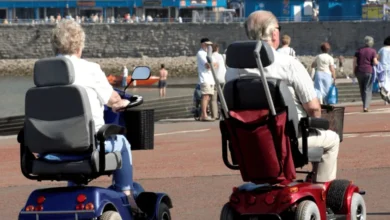Advanced years bring with them lots of potential health problems, including mobility issues and memory loss. These can confine an elderly person to their home, dramatically impacting their quality of life. Naturally, you’ll want to do everything you can for them, so here are a few tips to help.
#1 Visit regularly
Loneliness is a massive problem for the elderly. With decreased mobility and the loss of friends, it can be difficult for them to leave the house or enjoy any social interaction. This, of course, leads to mental health problems, including depression. It’s important to visit a relative as often as you can, even if those visits are only short. Dropping in on your way home from work can make all the difference.
#2 Consider professional care
No matter your best efforts, there may come a time when you need external help. This might be as simple as caregivers and clinicians who visit regularly, like the service provided by LightBridge Hospice in San Diego. This can be a wrench, but sometimes an elderly person’s quality of life is improved dramatically by bringing in help from elsewhere.
#3 Monitor medications
It’s not always enough to make a medication chart and expect an elderly person to follow it. Some people might be taking dozens of different medicines per day, which would be difficult for anybody to keep track of. Throw memory loss or decreased concentration into the equation, and things get even more difficult. Always keep track of medication and ensure that your relative is taking it when they’re supposed to.
#4 Try to keep them active
This might not always be possible, but even a small amount of activity has physical and mental health benefits. Something as simple as an accompanied walk in the park helps to alleviate loneliness and can keep joints and muscles healthy. Day trips in the car with short walks included are a fantastic way to help a relative see more of the world and get outside.
#5 Modify their home
Most homes aren’t suitable for the elderly and can cause trips and falls. These, of course, might have devastating long-term effects. Installing stairlifts, grab bars, anti-slip mats, and replacing hard floors with carpet all helps to make a home safer. You might also need to add a wheelchair ramp and walk-in bath.
#6 Make use of a medical alarm
These alarms can be lifesavers. They’re worn around the neck and come with a direct line to the emergency services. This means that if the wearer falls ill or is injured and can’t get to the phone, all they need to do is activate the alarm. For older people living alone, these alarms are essential purchases.
#7 Give them healthy food
Diet is more important than ever for the elderly. The right food can help with bone density, muscle strength, and even memory. Nonetheless, a person with decreased mobility might feel less inclined to cook healthy meals, many of which are time-consuming. Do some meal prep for your relative so that they always have healthy food close at hand.






